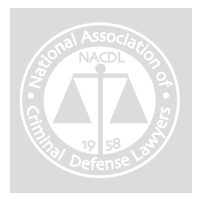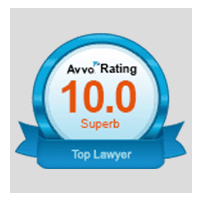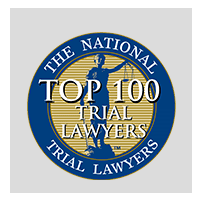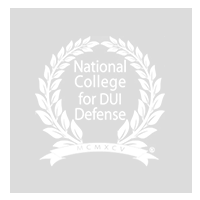South Carolina DUI Defenses
Driving under the influence, or DUI, is a serious criminal offense in South Carolina. All defendants charged with any level of DUI have important rights which come into play as soon as they are pulled over or approached by law enforcement. At the Law Office of James R. Snell, Jr., LLC, located in Lexington, South Carolina, we represent those charged with DUI and other South Carolina Criminal Offenses. When we are retained to defend someone charged with DUI every case undergoes a multi-step process by our office to ensure that our client's rights are protected.
Is it legal to drink and drive in South Carolina? Yes. Under South Carolina law it is legal to drink alcoholic beverages and drive. In fact many DUI trials will begin by the judge instructing the jury of this fact. It is however illegal to drive while impaired. While many DUI arrests occur because someone told the police that they had been drinking, the law requires that there be evidence of actual impairment.
Did the police actually observe you driving? Many DUI arrests occur after law enforcement finds someone "sleeping it off". These arrests happen even in situations were the car has been safely pulled off the road or is in a parking lot. South Carolina law holds that driving a motor vehicle requires actual movement. Simply sitting in a parked car (even with the engine running) isn't considered driving.If you weren't actually observed driving by the police then your DUI case may be eligible to be dismissed.
What is the legal definition of DUI in South Carolina? In order to be convicted of DUI the prosecution must prove that you were 1) driving; 2) a motor vehicle; 3) while materially and appreciably impaired. DUI isn't tied to any blood alcohol level. It does however require evidence that the driver's ability to drive was limited in some substantive way by alcohol or drugs. Many DUI arrests occur based on an officer's opinion, only later to have the Court later determine that there is insufficient evidence to sustain the charge.
Did the police officer have a legally justifiable reason to stop our client? If the police did not have legal grounds to initiate a traffic stop then their entire case is in jeopardy.
Did the police follow proper techniques in establishing a license check or roadblock? In a police roadblock all cars, or a regular pattern, are stopped. If the police did not follow roadblock law then the stops are illegal and their entire case is in jeopardy.
Were field sobriety tests administered by law enforcement? Many times police will request that a driver cooperate with field sobriety tests such as the one legged stand, walk and turn or an eye examination (called an HGN test). These tests are not designed to screen out sober drivers, they are designed to provide evidence to substantiate a DUI arrest. Nonstandard tests, such as alphabet recitation, and finger counting, may not be admissible in trial. Standard tests not administered in strict compliance with legal requirements also should not be admissible in trial.
Did law enforcement properly record the roadside encounter? In order to protect citizen's rights against false DUI charges South Carolina law requirements that the police videotape all DUI arrests beginning with the activation of the officer's blue lights. You don't know if the police did or did not follow these procedures until you file a formal demand for a copy of the video with the DUI Court. We make this request in all of our DUI cases.
Did the police give Miranda and the implied consent rights at the appropriate time? South Carolina law provides a "foolproof" formula for police to follow when making a DUI arrest. Many times though officer's who don't understand the law, or who choose to disregard it, fail to comply with the legal requirements when making a DUI arrest.
Was a breathalyzer test offered? There are legal requirements that must be followed for the administration of a breathalyzer test. It must be done within a certain period of time after a DUI arrest. The equipment must be in proper working order and correctly calibrated. Detailed legal rights much be provided to the defendant orally and in writing, and further this procedure must be videotaped.
Can the prosecution establish legal impairment? In South Carolina it is not against the law to drink alcohol and then drive an automobile. Whether or not someone is legally DUI is not a decision that can ever be made solely by law enforcement. If the police do not have enough evidence to prove someone was legally impaired then we demand our client's case should be dismissed or a not-guilty verdict returned.
Our multi-step process for DUI defense includes:
- A detailed interview of our client and any witnesses to the arrest;
- Filing a formal demand for copies of all legally relevant evidence with the prosecution;
- A thorough review of the arrest procedures to ensure the police acted lawfully and our client's rights were maintained;
- Filing motions with the Court to suppress evidence or even dismiss the charges prior to trial;
- Representation in Department of Motor Vehicle implied consent hearings, when our client's license is at risk due to a refusal to cooperate with the breathalyzer or testing over a 0.15 BAC;
- Appearance with our client at all pre-trial conferences, trial and other Court dates;
- Advocacy during the DUI trial process where all aspects of the State's case are challenged and tested before the Court;
If you have been charged with any DUI offense the first step in obtaining our help is to call for a confidential consultation with a Lexington DUI Defense Attorney. When you come for your appointment be sure to bring a copy of your ticket and all other paperwork you received from law enforcement or Bond Court. During your consultation we will discuss the details of your arrest along with any available factual or legal defenses. You will also have a chance to ask any questions you might have about South Carolina DUI law and Court procedures.
Appointments are scheduled in our office located at 123 Harmon Street in downtown Lexington. Cases are accepted in Lexington County, Richland County and throughout South Carolina. There is no charge for your first in person meeting with a lawyer. For those unable to meet with us in person we also offer fee based telephone consultations.
To schedule your initial appointment contact us directly at (803) 359-3301.







